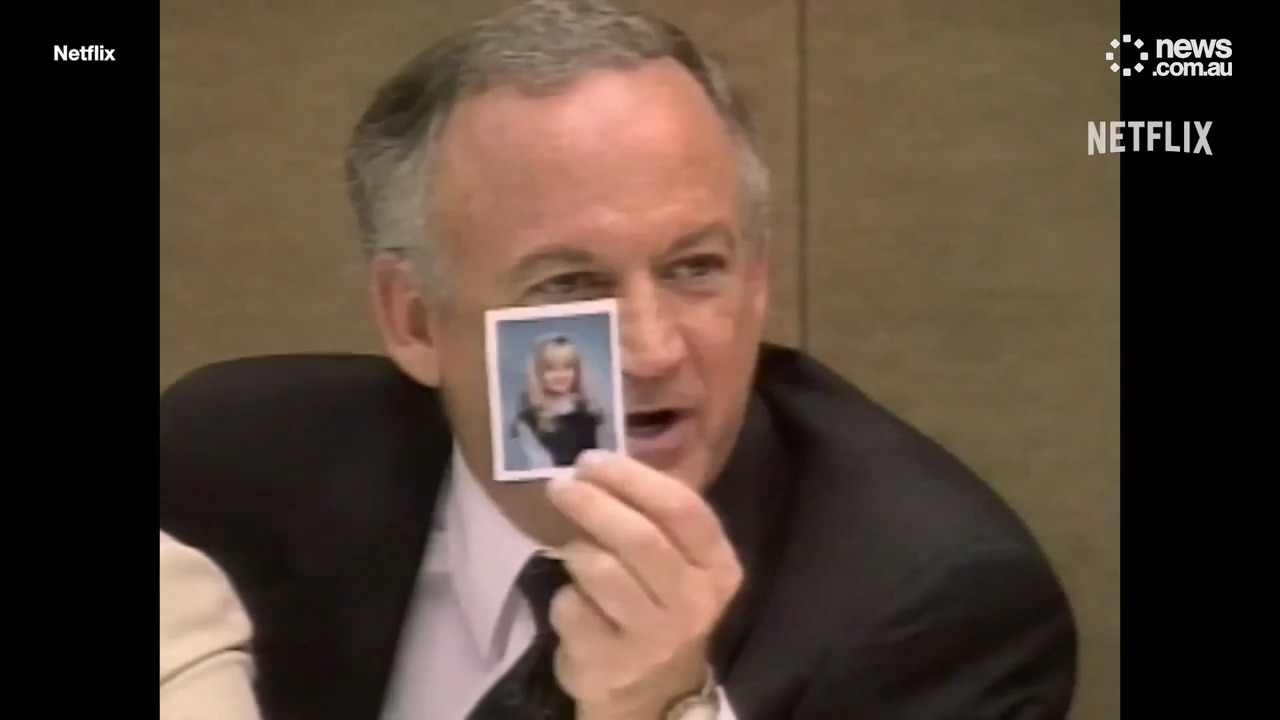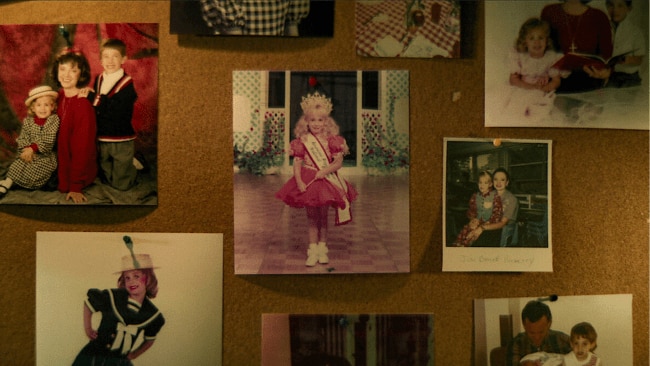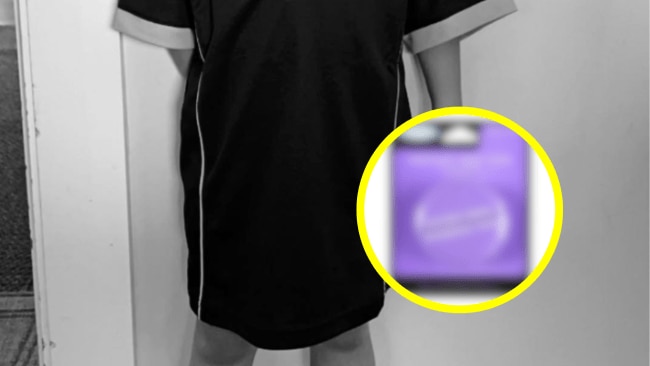Everything you think you know about the JonBenét Ramsey case is probably wrong
The new Netflix doco tells the story of the little girl who lost her life, and how the world owes her better than the circus that followed.

Lifestyle
Don't miss out on the headlines from Lifestyle. Followed categories will be added to My News.
It’s been nearly three decades since six-year-old JonBenét Ramsey’s tragic death on Christmas Day in 1996. Today the case that captured the world’s attention, sadly remains unsolved, clouded by misinformation and controversy.
A new Netflix docuseries: Cold Case: Who Killed JonBenét Ramsey, has reignited interest - not with the wild theories that we’ve come to expect from the many sensational deep dives into the tragic case - but with a scathing look at the investigative failures and media frenzy that turned a quest for justice into a public spectacle.
If you think you know the truth about this infamous case, you may want to think again.
Want to join the family? Sign up to our Kidspot newsletter for more stories like this.

RELATED: The biggest problem with Disney’s Moana 2
How it all began
This latest docuseries, directed by Oscar-nominated director Joe Berlinger, exposes the glaring mishandling of the investigation, highlighting how the Boulder Police Department, who by their own admission had little to no experience in homicide cases - seemed unprepared to manage a case of such magnitude.
When a distressed Patsy Ramsey called 911 to report her daughter missing after discovering a bizarre ransom note on a stairwell, the first responders failed to secure the family home as a crime scene. Friends, neighbours, and even the family’s pastor wandered freely, potentially contaminating vital evidence.
Shockingly, the basement - where JonBenét’s body was later found - wasn’t searched immediately during the police department’s initial sweep of the home. It was hours after police arrived, as the family and law enforcement waited for word from the alleged kidnappers, that JonBenét’s father, John Ramsey, discovered her lifeless body while looking for ways that an intruder could have entered the family home. In shock, he carried her upstairs, inadvertently compromising critical forensic evidence.
John Ramsey finding the body also placed him firmly in the public’s eye as a potential murderer, although no evidence ever came close to confirming those suspicions.
The ransom note, an inexplicably lengthy demand for $118,000 (the exact amount of John’s recent work bonus), was handled repeatedly by both investigators and family members. Key opportunities to preserve crucial evidence were missed in those early, chaotic hours.
Introducing our new podcast: Mum Club! Listen and subscribe wherever you get your podcasts so you never miss an episode.
RELATED: It’s official: Wicked really is worth the hype
Speculations and scrutiny
While the police floundered, the media turned JonBenét’s murder into a grotesque form of entertainment. Tabloid headlines and so-called “expert” analysis fueled wild theories that unfairly placed the Ramsey family at the centre of public suspicion.
One of the most egregious moments was a mock trial on Geraldo Rivera’s daytime TV show, where “experts” presented outlandish claims, including the absurd and baseless accusation that JonBenét had been sexually demonstrative with a saxophone during a pageant, engaging in behaviour that was shocking for a child her age. Footage later clearly debunked these claims, but the damage was done. The public imagination ran wild, cementing the Ramseys as villains in a trial-by-media.
The intense speculation also saw scrutiny intensify around JonBenét’s brother, Burke, who was just 10 years old when his younger sister lost her life. A later interview with Dr. Phil saw Burke’s nervous laughter dissected by amateur psychologists, leading to an avalanche of accusations that he was responsible for his sister’s death. Again, the documentary dismantles this theory, emphasising the harm caused by baseless speculation targeting a child.
JonBenét’s heartbroken mother, Patsy Ramsey, was also vilified. Her composed demeanour and polished image were used as “evidence” against her, with theories ranging from her staging the crime scene to her killing JonBenét in a fit of rage over bedwetting. As the documentary reveals, these accusations were built on misogynistic assumptions and lacked credible evidence. For example, the infamous ransom note - often cited as proof of Patsy’s involvement - did not match her handwriting upon professional analysis.
Debunking what we thought we knew
The documentary shifts the spotlight back to what truly matters: finding JonBenét’s killer. It introduces new suspects and evidence that challenge the family-blaming narrative perpetuated for years.
One compelling lead involves unidentified male DNA found on JonBenét’s clothing. Advances in forensic technology have brought this evidence into sharper focus, yet it was largely ignored in the early investigation due to law enforcement’s fixation on the Ramsey family.
The documentary also identifies a local man with a history of violent behaviour toward children. His proximity to the crime scene and disturbing comments made years later make him a person of interest.
Additionally, evidence of a possible break-in, including a broken basement window and an unidentified footprint, points to an intruder theory that was overshadowed by the police and media’s tunnel vision. These details, overlooked at the time, now seem critical to understanding what may have really happened that night.
The documentary is not just a re-examination of the JonBenét Ramsey case; it’s a mirror reflecting society’s role in turning a tragedy into a spectacle. From sensationalised TV programs to viral accusations on social media, the pursuit of justice took a backseat to public entertainment.
The systemic failures - from the initial investigation to the media frenzy - didn’t just derail the case; they destroyed lives. While the Ramseys were never formally charged, they endured years of relentless scrutiny, living under a shadow of suspicion that no evidence ever fully justified.
Never let the truth get in the way in a good scandal, even if it lets a murderer go free.
At its core, the JonBenét Ramsey case remains a heartbreaking tale of justice delayed. The Netflix documentary doesn’t solve the mystery, but is a call to revisit the evidence with fresh eyes and for society to approach true crime with empathy and critical thinking.
JonBenét’s story isn’t just about police errors, media overreach, or public misjudgement. It’s a stark reminder of the cost of getting it wrong. A little girl lost her life, and the world owes her better than the circus that followed.
More Coverage
Originally published as Everything you think you know about the JonBenét Ramsey case is probably wrong




